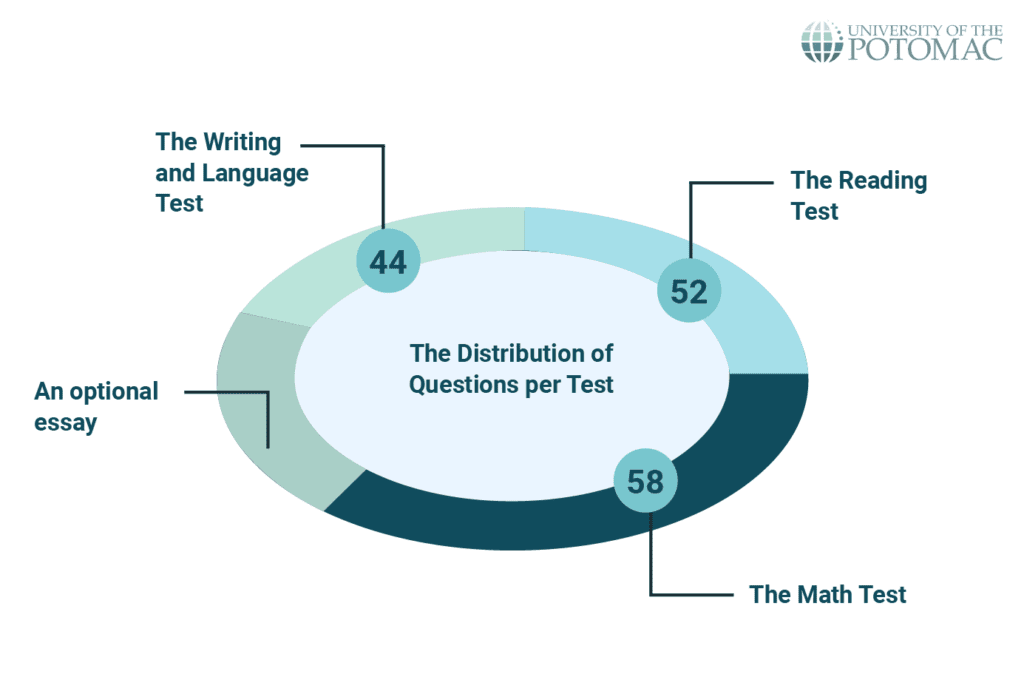The Scholastic Aptitude Test, more commonly known as the SAT, is a name that resonates with all high school students aspiring to attend college. This standardized test assesses students’ readiness for higher education. For many, it represents a significant milestone in their academic journey, potentially opening doors to higher education.
The SAT often takes center stage as a pivotal component of the college application process. Therefore, it’s no wonder that the question “What is a good SAT score?” frequently arises. So, let’s explore the factors that define a good SAT score. Understanding the scoring system allows students to chart a confident course toward achieving their academic goals.
The Importance of SAT Scores
SAT scores are important for several reasons, primarily in the context of college admissions in the United States. Though some higher education institutions have gone test-optional and mainly base their admission decisions on grade point averages (GPAs), many others prefer using SAT scores as a standardized way to compare students from different high schools and regions. Since educational systems can vary significantly from one institution to another, the SAT offers a standard metric that colleges can use to evaluate students on a level playing field.
Another notable aspect of the importance of SAT scores lies in their impact on merit-based scholarships granted by educational institutions. Such scholarships are designed to reward students with exceptional academic achievement and potential, including good college GPAs and SAT scores. Therefore, SAT scores can substantially enhance a student’s eligibility for merit-based scholarships, creating financial support opportunities that ease the financial load of tuition expenses.
Understanding the SAT Score Range
SAT scores can range from 400 points to 1600. This score is calculated by adding the scores from the Reading and Writing section and the Math section. Each of these two sections can yield a score between 200 and 800.
Test Breakdown

The SAT consists of three tests with a total of 154 questions or tasks:
- The Reading Test (52 questions/tasks)
- The Writing and Language Test (44 questions/tasks)
- The Math Test (58 questions/tasks)
- An optional essay
Most of the questions are presented in a multiple-choice format. However, a subset of the math questions requires you to provide the answer in written form instead of selecting it from the options.
How is the Test Scored?
Each test score is based on the number of questions answered correctly, which is then converted into a scaled score between 10 and 40 to account for differences in difficulty. The Reading and Writing section score is calculated by multiplying the Reading test and the Writing and Language test scores by 10 and adding them together. Then, the Math section score is calculated by multiplying the Math Test score by 20.
Similarly, after calculating each test score, the section scores are based on the raw score in each section, converted to a scaled score between 200 and 800.
What Constitutes a Good SAT Score in 2023?
Recognizing that what constitutes a good SAT score can vary significantly is essential. Except for a perfect score, which is undoubtedly “good,” the definition of a good score is intricately linked to factors such as the median composite SAT score and the specific higher education institution you aspire to attend.
Median Composite SAT Score
You can determine how good your SAT score is by calculating your percentile ranking with the average of all nationwide test takers. According to College Board reports, the middle composite SAT score, known as the median, is set at 1088.
Therefore, since the 50th percentile aligns with the median, you can assume that half of the test takers obtained scores below this point while the other half scored higher. Achieving a composite SAT score of 1088 or beyond places you above the average performance level and indicates a “good” SAT score.
Varied Expectations Across Different College Types
What’s considered a good SAT score will also depend on the type of college or university you’re applying to, as different institutions have varying average scores for admitted students.
Some highly selective schools have rigorous admission standards and typically require SAT scores well above the national average, often in the top percentiles. On the other hand, moderately selective schools provide much more flexibility in their admission requirements. A good score for such schools would be scores close to or slightly above the median.
Preparing for the SAT
Regardless of how great of a student you were in high school, it is essential to study specifically for the SAT to get a good SAT score. This preparatory phase should span several months, considering that preparing for the SAT is a gradual and comprehensive process. By employing the right strategies, students can strive to conquer the SAT while nurturing fundamental skills supporting their academic journey.
Self-study, Tutoring, and Test Prep Courses

A balanced approach to adequate SAT preparation involves independent efforts and seeking assistance from peers and professionals. While self-study offers the advantage of setting your own pace and focusing on specific areas, using official SAT materials to guide your learning, employing a tutor, or enrolling in a prep course can provide a more structured strategy. These options also bring the benefit of experienced educators who can pinpoint your weaknesses, guide you toward improvement, and enhance your overall readiness for the test..
Interested in pursuing a degree?
Fill out the form and get all admission information you need regarding your chosen program.
This will only take a moment.
Message Received!
Thank you for reaching out to us. We will review your message and get right back to you within 24 hours.
If there is an urgent matter and you need to speak to someone immediately you can call at the following phone number:
- We value your privacy.
Utilize Practice Tests
Another tried-and-true strategy when preparing for the SAT is to engage yourself through practice exams. These practice exams help familiarize you with the test format, hone your time management skills, and build confidence. Depending on your preferred test-taking environment, consider printing or taking the practice tests online to simulate the actual test conditions. This approach allows you to effectively replicate the experience you will encounter on the test day, be it a traditional paper-and-pencil version or the digital SAT. By immersing yourself in these simulated tests, you will refine your problem-solving abilities and better understand your strengths and areas that could benefit from extra attention.
Emphasizing Skill Improvement Over Rote Memorization
When preparing for the SAT, it’s crucial to prioritize skill enhancement over rote memorization. The SAT evaluates critical thinking, analytical reasoning, and the application of knowledge; therefore, by emphasizing skill improvement, test-takers can approach the exam with a versatile toolkit, enabling them to navigate its challenges and achieve better outcomes. Instead of memorizing formulas, focusing on understanding underlying principles and honing problem-solving skills not only yields effective SAT results but also cultivates valuable skills for the future.
Conclusion
SAT scores are crucial for college admissions and scholarships, significantly if your score exceeds the median score among your peers and meets the expectations of your desired institution. The key to achieving a good score is striking a balance between self-study, tutoring, and test preparation, all while emphasizing skill enhancement. By harnessing these strategies, you lay the groundwork for success on the SAT and future academic achievements.
Frequently Asked Questions (FAQ):
What is a good SAT score?
The definition of a good SAT score can differ based on the specific school you’re interested in. In general, if your score exceeds the median scores of admitted students, it can be classified as a strong performance.
Do colleges still look at SAT scores for admissions?
Though some colleges have adopted test-optional policies, most still consider SAT scores as part of a comprehensive application review, including grades, essays, and recommendations.
How is the SAT scored?
The SAT is scored based on the number of correct answers in the Reading and Writing and Math sections. Each can be scored between 200-800, and the total SAT score is the sum of these section scores.
Is the SAT Essay critical?
The SAT Essay is less important than the other sections since most colleges do not require it. However, some may use it to evaluate writing abilities. Therefore, check with your selected schools to determine if that section is necessary.
How can I find average SAT scores for colleges I’m interested in?
You can find average SAT scores for colleges on their websites, various college search platforms, or through the College Board.
How do I prepare for the SAT?
SAT preparation typically involves a blend of self-study, tutoring, and test prep courses. Focus on skill improvement, practice with official SAT materials, and consider taking practice tests to familiarize yourself with the exam format.
Is the SAT score the only thing colleges care about?
No, colleges typically evaluate SAT scores alongside other factors like GPA, extracurricular activities, essays, and recommendation letters.










